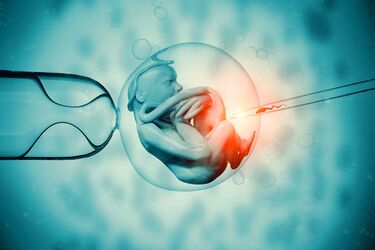UK creates human embryo from stem cells for the first time

Scientists have created the first human embryo from stem cells. This result was achieved by experts from the University of Cambridge.
The artificial human embryo was created without eggs and sperm, and is very similar to human embryos in the early stages of development.
According to the Guardian, the innovation could become a new methodology for studying genetic diseases and the physiological causes of repeated miscarriages. But it also raises many ethical and legal issues.
Read also: Artificial uterus: EctoLife presents the concept of a baby factory
The laws of most countries do not allow working with embryos older than 14 weeks. But they do not cover such an area as embryo modelling through germline reprogramming. British scientists took advantage of this nuance of the law.
The technology of using stem cells makes it possible to obtain embryos without a beating heart and brain rudiments, but with cells and tissues similar to those that form the placenta, gallbladder and the embryo itself.
"The British model was the first three-line model of the human embryo to isolate amniotic and germ cells, egg and sperm progenitor cells," the authors of the experiment note.
At the same time, artificial embryos cannot yet be implanted into a woman's uterus, as the law does not allow it. They will only be used to study fetal development after 14 weeks. And there is currently no certainty that they can fully develop further.
As a reminder, experts from the Barcelona-based startup Overture Life have created a robot for sperm injection. It was able to automate the process of in vitro fertilisation, which resulted in the birth of the first children this year.
If you want to get the latest news about the war and events in Ukraine, subscribe to our Telegram channel!
